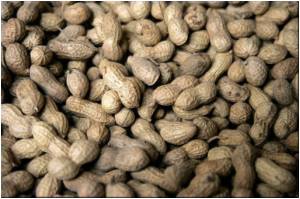Oral immunotherapy for peanut allergy induces early, distinct changes in immune T-cells that may help researchers determine which people will respond to therapy.

‘Oral immunotherapy for peanut allergy induces early, distinct changes in immune T-cell populations. This may help researchers determine which people will respond well to the therapy and which immune mechanisms are involved in the response.’





The researchers examined blood samples taken from peanut-allergic volunteers enrolled in an oral immunotherapy study. Participants consumed small, gradually increasing daily doses of peanut protein for 24 months with the ultimate goal of inducing long-term tolerance to peanut.
Using advanced laboratory techniques, the scientists tracked changes in peanut-specific T cells in five participants during the first 18 months of peanut immunotherapy. They compared these results with those from blood samples taken before the start of immunotherapy and from healthy, non-allergic volunteers.
Immunotherapy caused an increase in peanut-specific T cells, accompanied by a change in the distribution of T-cell subtypes over time. With treatment, T-cell subtypes normally associated with allergic responses diminished, while a novel T-cell population that likely would not mount an allergic response expanded.
These preliminary findings show the power of this approach to analyze and monitor allergen-specific immune cell changes during immunotherapy. Future studies with more patients will help determine whether this type of detailed T-cell analysis is useful for predicting which peanut-allergic individuals are most likely to benefit from this investigational therapy.
Source-Eurekalert














